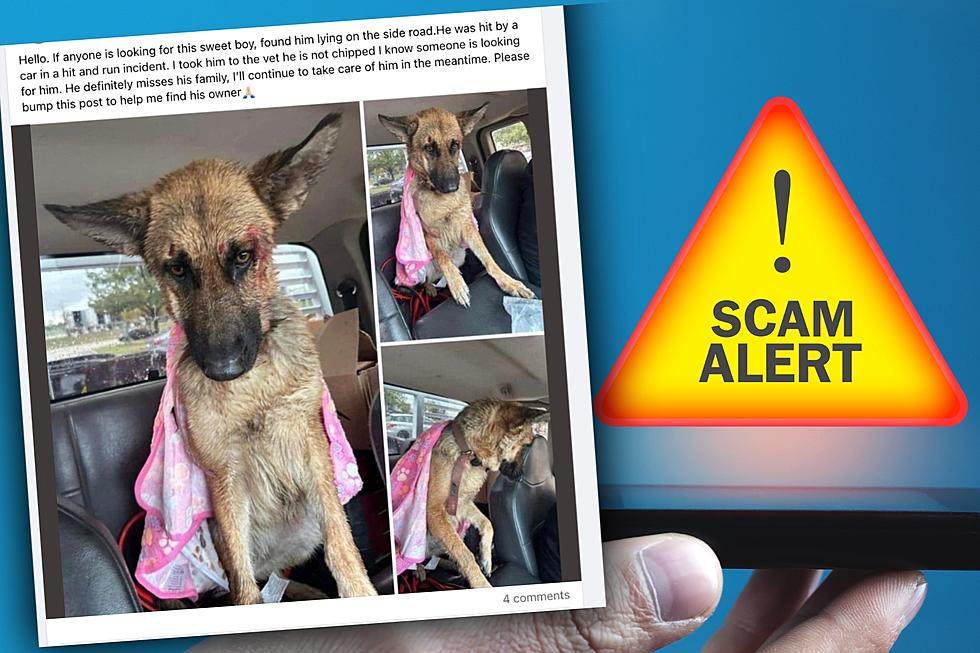
Scammers Target New Jersey & Pennsylvania Facebook Groups With Posts About Injured Dogs
Have you recently seen a post in your community Facebook group about an injured dog in the area? Whether it’s a group dedicated to the goings on in your town or your local Buy Sell groups, there’s been a huge uptick in these posts.
The posts, which claim that they’ve discovered an injured dog on the side of the road, are often accompanied by a graphic image of the injured pet. They ask users to share it on their feed to track down the pet's owner.
But don’t fall for it. The Better Business Bureau (BBB) warns that these are likely scams.
Here's a recent example from a public Mercer County Facebook group that I saw this week:
How Do These Facebook Scams Involving Lost Pets & Kids Work?
The poster wants you to share the news about the injured pet on your own profile so you can help track down the owner. But it’s really a bait-and-switch for you and your friends.
After you share the post about the injured or lost dog, the scammer will change the original post to a deceptive rental ad or even a link that points to a survey guaranteeing a cash prize. And, yes, it updates the post on your feed as well.
Then the BBB says that your friends may see this post and think that you’ve recommended the content, but in reality, they’re just looking to target our personal information.
In fact, a lot of times the bait and switch post involves a property rental.
"It looks like your Facebook friend has shared this rental, so it must be legitimate," said Laura Blankenship, of the Better Business Bureau told the Detroit Free Press recently.
The BBB first warned about these in late 2022, but it seems like there’s been a significant rise in those posts in Pennsylvania and New Jersey in July 2023. I've seen at least five posts depicting bloody dogs in the past 24 hours, and I gotta say it's been jarring.
Here's what one of those posts looked like on my feed:
How You Can Avoid Being Scammed on Facebook With a False Post or Ad About a Lost Pet
The Better Business Bureau (BBB) offers some tips that may actually be helpful. We’ve outlined them here:
- Look for more information before you reshare it on your feed. Check out the profile of the original poster. Are they really from your area?
- Check When the poster made their Facebook profile. Scammers have to constantly make new profiles when they’re banned from Facebook. So click on their profile to see when they made their profile or joined the group. If they recently joined that’s a red flag.
- Find Similar Posts. Copy and paste some of the text from the post into the Facebook search tool to see if other posts come up as well. You can even try googling it or using a reverse image search to see where else the picture was shared.
The BBB has other tips here as well, click here to view them.
By the way, if you do suspect you’ve seen a scam or fraudulent post, report it to Facebook. You can do that by clicking here to visit the Help page on Facebook.
And if you’ve been the victim of a scam report it to the Better Business Bureau as well on their website for their Scam Tracker.
Why you shouldn't visit the Jersey Shore this summer
More From 94.5 PST









